The dusty lanes of Phulera beckon once more. Panchayat Season 4, the highly anticipated continuation of TVF’s beloved rural dramedy, has finally arrived, proving that the magic of this humble village tale is far from fading. After the explosive cliffhanger of Season 3, where Pradhan Pati Brij Bhushan (the irreplaceable Raghubir Yadav) was arrested and the formidable Kranti Devi (Sunita Rajwar) set her sights on the Pradhan’s seat, expectations were sky-high. Does Season 4 deliver? In short: Yes, and with remarkable emotional resonance and sharper satire than ever. This season masterfully balances laugh-out-loud moments with profound reflections on power, responsibility, community, and the quiet heroism of ordinary people.
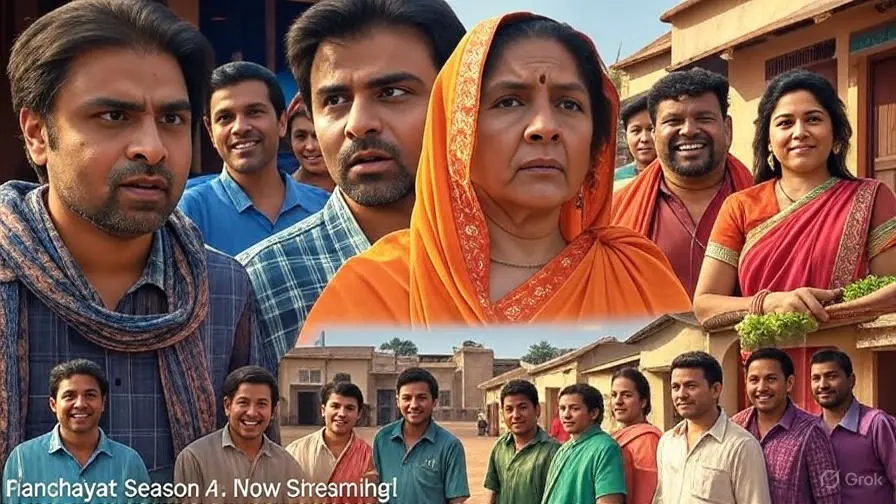
The Phulera Pendulum Swings: Plot Dynamics of Season 4
Picking up directly from the chaos, Season 4 plunges us into the aftermath of Brij Bhushan’s arrest. The central conflict ignites immediately: Manju Devi (Neena Gupta), thrust into the role of Acting Pradhan, must defend her position against the ambitious and cunning Kranti Devi. This isn’t just an election; it’s a battle for the soul of Phulera. Abhishek Tripathi (Jitendra Kumar), our perpetually bewildered engineering graduate-turned-secretary, finds himself more entangled than ever. He’s no longer just an observer; he’s Manju Devi’s crucial strategist and emotional anchor, grappling with his own future while navigating increasingly complex village politics.
The season expertly weaves multiple narrative threads:
- The Election War: The Manju Devi vs. Kranti Devi showdown forms the core. Campaign strategies, underhanded tactics, emotional appeals, and the unpredictable whims of the Phulera electorate drive intense drama. This isn’t high-stakes national politics; it’s deeply personal, petty, and utterly relatable rural power play.
- Abhishek’s Crossroads: His UPSC dreams loom large. The tension between his duty to Phulera, his growing attachment to its people (especially Vikas and Prahlad), and his personal aspirations creates the season’s most poignant internal conflict. Can he leave? Should he leave?
- Brij Bhushan’s Shadow: Even absent, Yadav’s presence is felt. His legal troubles, his influence on Manju Devi, and the villagers’ loyalty (or lack thereof) add layers of complexity. His potential return hangs over every scene.
- Vikas & Prahlad’s Shenanigans: Chandan Roy (Vikas) and Faisal Malik (Prahlad) continue to be the heartwarming (and hilarious) soul of the show. Their unwavering loyalty to Abhishek and their simple, often misguided, attempts to “help” provide essential comic relief and genuine emotional beats. Vikas’s romantic pursuit adds sweet charm.
- Rinky’s Evolution: Sanvikaa’s Rinky moves beyond the shy admirer. She becomes more assertive, involved in village affairs, and her subtle, unspoken connection with Abhishek gains new depth.
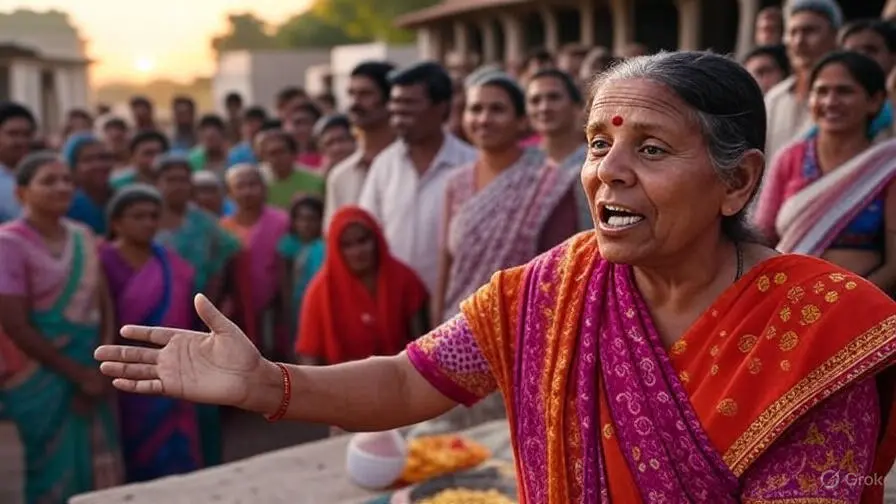
Beyond Laughter: Sharpening the Satire & Deepening the Drama
While Panchayat has always been funny, Season 4 elevates its social commentary. The election plot becomes a razor-sharp lens examining:
- The Absurdity of Rural Politics: The focus on trivialities, the power of small favors (“revdi culture”), the manipulation of caste dynamics, and the sheer unpredictability of voter sentiment are portrayed with both humor and unsettling accuracy. It holds a mirror to the democratic process at its most grassroots – and often, its most flawed.
- Gender Dynamics in Power: Manju Devi’s journey is groundbreaking. Her struggle isn’t just against Kranti Devi; it’s against deeply ingrained patriarchal attitudes. Her moments of self-doubt, her surprising resilience, and her fight to be taken seriously as a leader in her own right, not just Brij Bhushan’s wife, form a powerful feminist undercurrent. Neena Gupta portrays this with breathtaking nuance – vulnerability and steel intertwined.
- The Bureaucratic Quagmire: Abhishek’s battles with apathetic or corrupt higher officials highlight the systemic hurdles facing rural development. His idealism constantly bumps against the harsh realities of implementation.
- The True Meaning of “Development”: The season subtly questions what progress really means for Phulera. Is it concrete roads and schemes, or is it the preservation of community, trust, and simple human connection? The show argues compellingly for the latter.
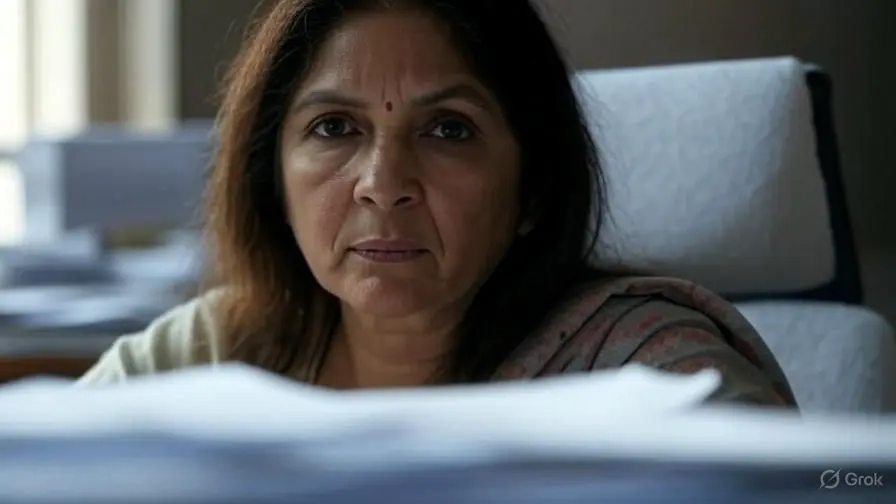
Performances: A Masterclass in Nuance
The ensemble cast delivers career-best performances:
- Neena Gupta (Manju Devi): This is Gupta’s season. She transcends the comic archetype, portraying Manju Devi’s transformation from a hesitant stand-in to a leader discovering her own voice and strength. Her emotional moments – fear, anger, resolve, maternal warmth – are profoundly moving. She embodies the quiet revolution of an ordinary woman rising to extraordinary circumstances. Outer Link: Analysis of Neena Gupta’s performance – Times of India Article
- Jitendra Kumar (Abhishek Tripathi): Kumar perfects the art of reactive comedy and understated emotion. His internal conflict is palpable. We see Abhishek mature, grapple with ethical dilemmas, and show fierce loyalty, all while maintaining his endearing awkwardness. His chemistry with everyone, especially Vikas, Prahlad, and Rinky, remains golden.
- Sunita Rajwar (Kranti Devi): Rajwar is a formidable antagonist. She avoids caricature, making Kranti Devi cunning, ambitious, and frustratingly effective. Her smug confidence and sharp tongue make her a perfect foil for Manju Devi’s earnestness.
- Raghubir Yadav (Brij Bhushan): Though physically absent for significant stretches, Yadav’s presence is immense. His brief appearances are loaded with emotion, showcasing Brij Bhushan’s vulnerability and enduring spirit. His chemistry with Neena Gupta remains electric.
- Chandan Roy (Vikas) & Faisal Malik (Prahlad): The dynamic duo continues to steal scenes. Their innocence, loyalty, and hilarious misinterpretations of situations provide the show’s warm, beating heart. Vikas’s romantic subplot is handled with delightful tenderness.
- Sanvikaa (Rinky): Brings a quiet grace and growing confidence. Her scenes with Abhishek are charged with unspoken understanding and longing.
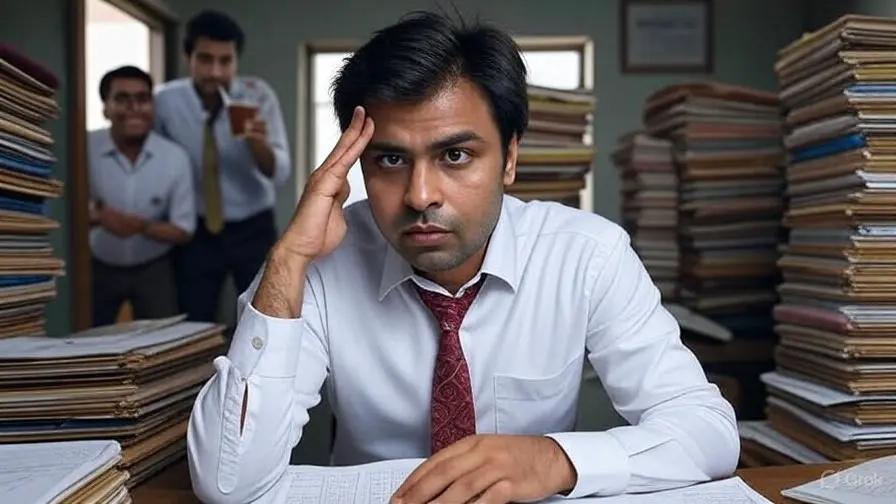
Pacing and Tone: A Shift Towards Heavier Drama?
Some critics, like News18, noted the season leans heavier into drama and political maneuvering compared to the lighter tone of earlier seasons. While the trademark humor is still present (largely thanks to Vikas, Prahlad, and the villagers’ antics), the central election plot carries significant weight and tension. This isn’t necessarily a flaw; it reflects the raised stakes. The season matures alongside its characters. However, the balance occasionally tips, with a few plot points feeling slightly protracted. The emotional payoffs, though, are worth the investment.
The Verdict: Why Panchayat Season 4 Resonates So Deeply
Panchayat Season 4 is a triumph. It successfully navigates the challenge of escalating stakes while staying true to its core: the authentic portrayal of rural Indian life, its absurdities, its warmth, and its deeply human struggles. It’s more than just a comedy or a political drama; it’s a poignant exploration of:
- Finding Purpose: Abhishek’s journey mirrors the search for meaning many face.
- Quiet Courage: Manju Devi embodies the extraordinary strength found in ordinary women.
- Community vs. Ambition: The tension between individual dreams (Abhishek’s UPSC, Kranti’s power grab) and collective good.
- The Enduring Power of Connection: The bonds between Abhishek, Vikas, Prahlad, Rinky, and even Manju Devi and Brij Bhushan are the show’s emotional bedrock.
Where to Watch Panchayat Season 4
All episodes of Panchayat Season 4 are available for exclusive streaming on Amazon Prime Video in India and internationally. You can find it on the Panchayat JustWatch Page.
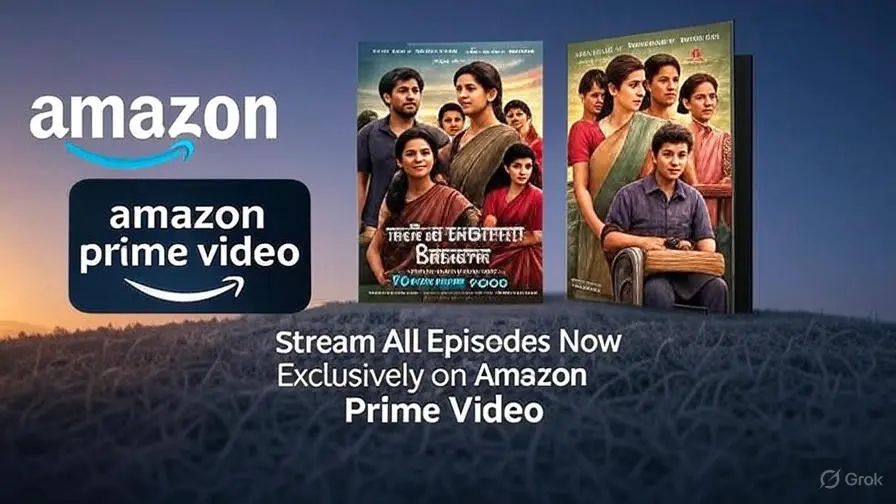
The Final Word: A Must-Watch Masterpiece
Panchayat Season 4 doesn’t just meet expectations; it surpasses them by delving deeper into the hearts and minds of Phulera’s residents. The shift towards more pronounced drama and political tension is a natural evolution, handled with the show’s signature empathy and sharp observation. Neena Gupta delivers a performance for the ages, Jitendra Kumar solidifies his everyman appeal, and the supporting cast remains impeccable. While the relentless election focus might feel slightly overwhelming for those craving the pure, lighter comedy of Season 1, the emotional depth, character development, and satisfying narrative payoffs make this season an unmissable chapter in the Panchayat saga. It’s a heartfelt, funny, and ultimately uplifting testament to the resilience of community and the quiet power of doing the right thing, even in the messy, chaotic world of Phulera. Don’t miss it.